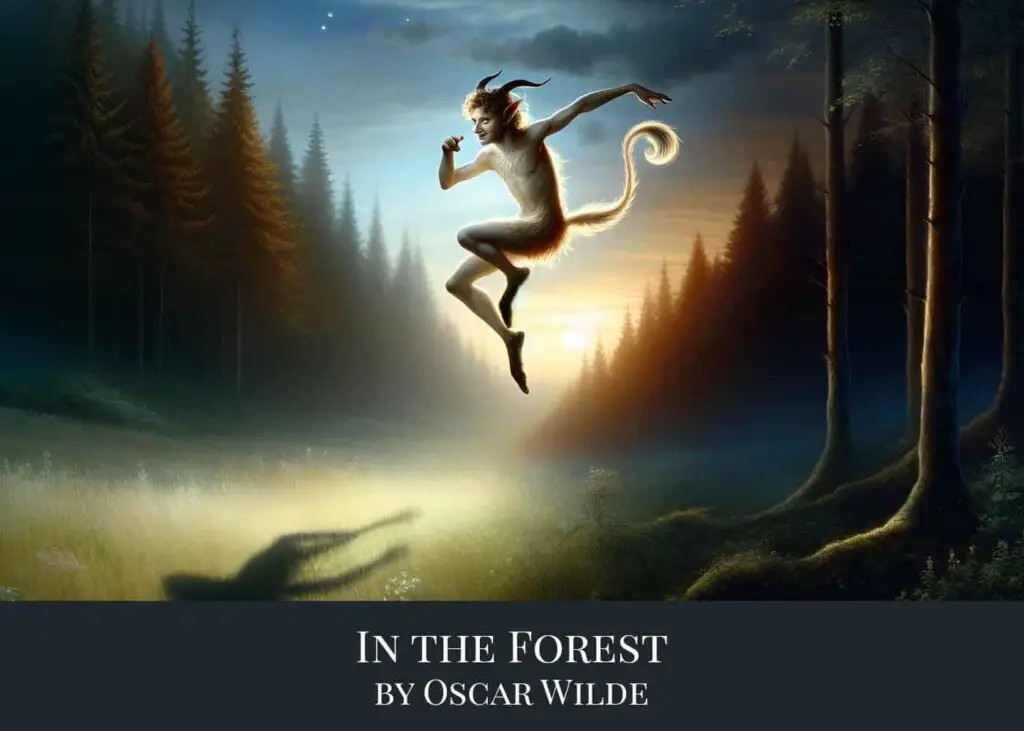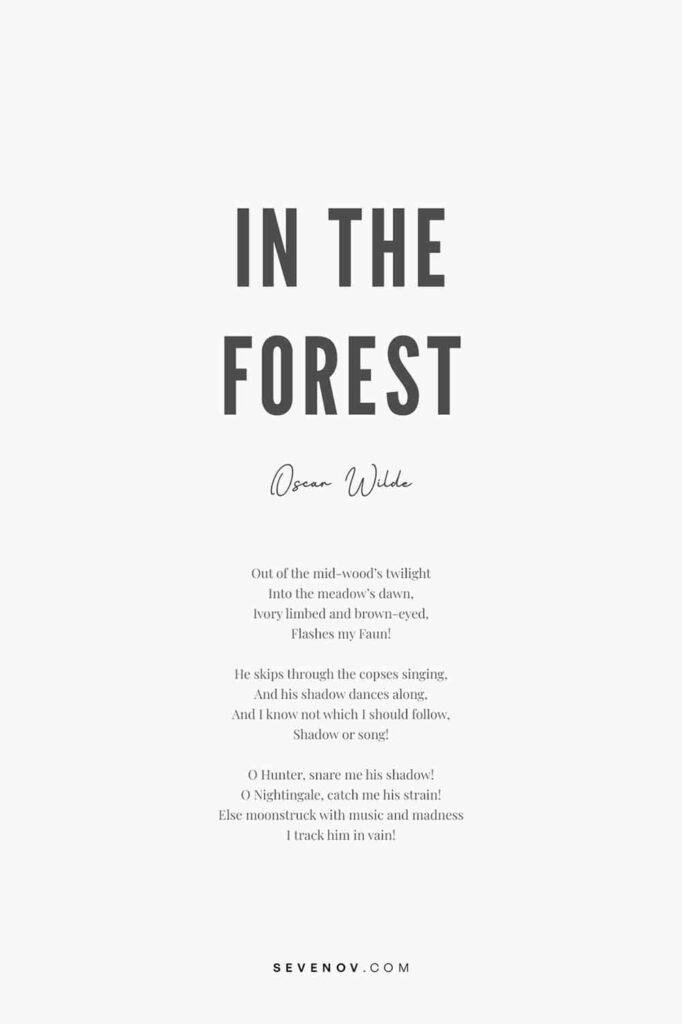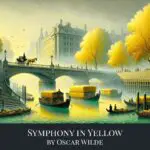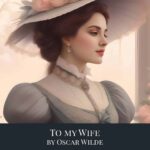
In the Forest by Oscar Wilde
“In the Forest” is a captivating poem by Irish poet and dramatist Oscar Wilde, featured in his first poetry volume Poems. This lyrical piece transports readers into a mystical realm, moving from the shadowy twilight of the woods into the fresh dawn of the meadow. It vividly portrays an ivory-limbed, brown-eyed Faun, a mythical figure who embodies the spirit of the forest.
As the Faun dances and sings through the woods, the speaker is torn between following the creature’s shadow or its enchanting song. This poem, rich in imagery and imbued with a sense of yearning and enchantment, is a fine example of Wilde’s poetic brilliance. Readers interested in exploring more of Wilde’s poetic works can find Poems ebook at PageVio.
1. The Poem
Out of the mid-wood’s twilight
Into the meadow’s dawn,
Ivory limbed and brown-eyed,
Flashes my Faun!
He skips through the copses singing,
And his shadow dances along,
And I know not which I should follow,
Shadow or song!
O Hunter, snare me his shadow!
O Nightingale, catch me his strain!
Else moonstruck with music and madness
I track him in vain!

Size: 8″ x 12″ (2:3 ratio)
Format: PDF
Copyright information: For personal use only
Note: Actual poster background color is white. For the sample poster, the background is made gray for illustration purpose.
2. In the Forest Analysis
“In the Forest,” evocative of mythical and pastoral imagery, can be interpreted stanza by stanza as follows:
Stanza 1
Out of the mid-wood’s twilight / Into the meadow’s dawn, / Ivory limbed and brown-eyed, / Flashes my Faun!
This stanza paints a picture of a faun, a mythical creature often depicted as part human, part goat, emerging from the dim, mystical twilight of the woods into the fresh dawn of a meadow. The faun is described vividly with “ivory” limbs and “brown” eyes, symbolizing both purity and earthiness. The word “flashes” suggests a sudden, bright appearance, emphasizing the faun’s otherworldly and elusive nature.
Stanza 2
He skips through the copses singing, / And his shadow dances along, / And I know not which I should follow, / Shadow or song!*
Here, the faun is portrayed as a joyful, lively being, moving through the small groups of trees (“copses”) and singing. The focus on his singing and the accompanying dancing shadow creates a sense of enchantment. The speaker is torn between following the faun’s shadow or his song, symbolizing a conflict between following a tangible, visual path or an intangible, auditory one. This reflects a deeper dilemma of choosing between two equally alluring but different aspects of an experience or desire.
Stanza 3
O Hunter, snare me his shadow! / O Nightingale, catch me his strain! / Else moonstruck with music and madness / I track him in vain!
In the final stanza, the speaker calls upon a hunter to capture the faun’s shadow and a nightingale to catch his song. This is a plea to harness the essence of the faun, either through the tangible (shadow) or the intangible (song). The term “moonstruck” suggests being crazily in love or obsessed, implying that without capturing some part of the faun, the speaker’s pursuit is driven by an overwhelming and perhaps irrational passion. The phrase “track him in vain” shows the futility and desperation in the speaker’s pursuit, highlighting the elusive and captivating nature of the faun.
Overall, the poem creates a mystical, dream-like atmosphere and explores themes of desire, enchantment, and the elusive nature of beauty and passion. It plays on the contrast between the tangible and intangible, reality and fantasy, and the struggles inherent in trying to capture or follow something as ephemeral as a dream or a song.
3. Conclusion
We hope that Oscar Wilde’s “In the Forest” has captivated you. Feel free to delve into this collection of poems by Oscar Wilde.




